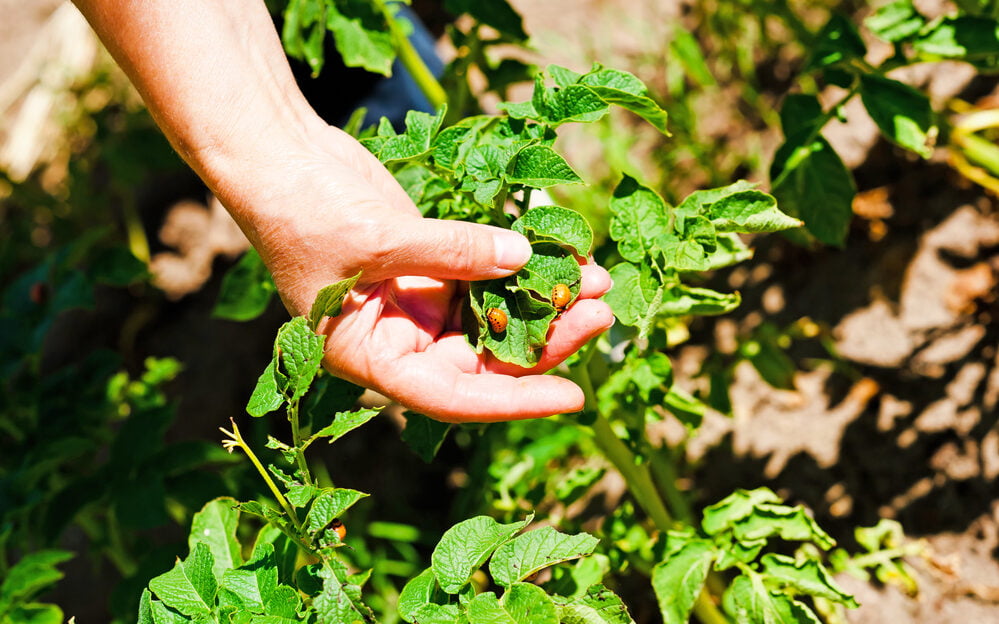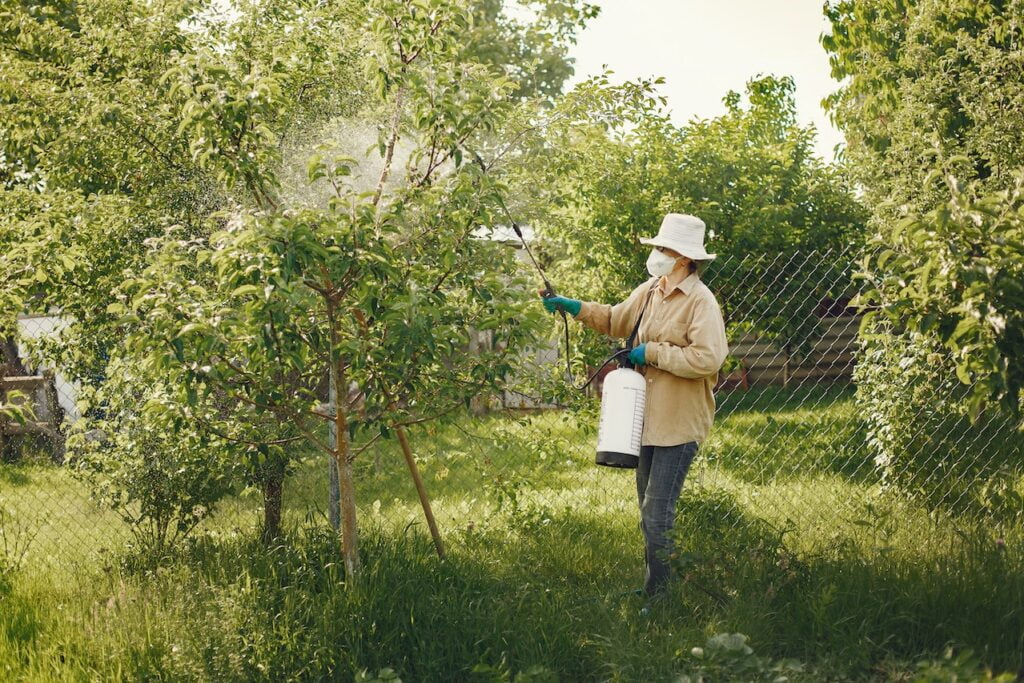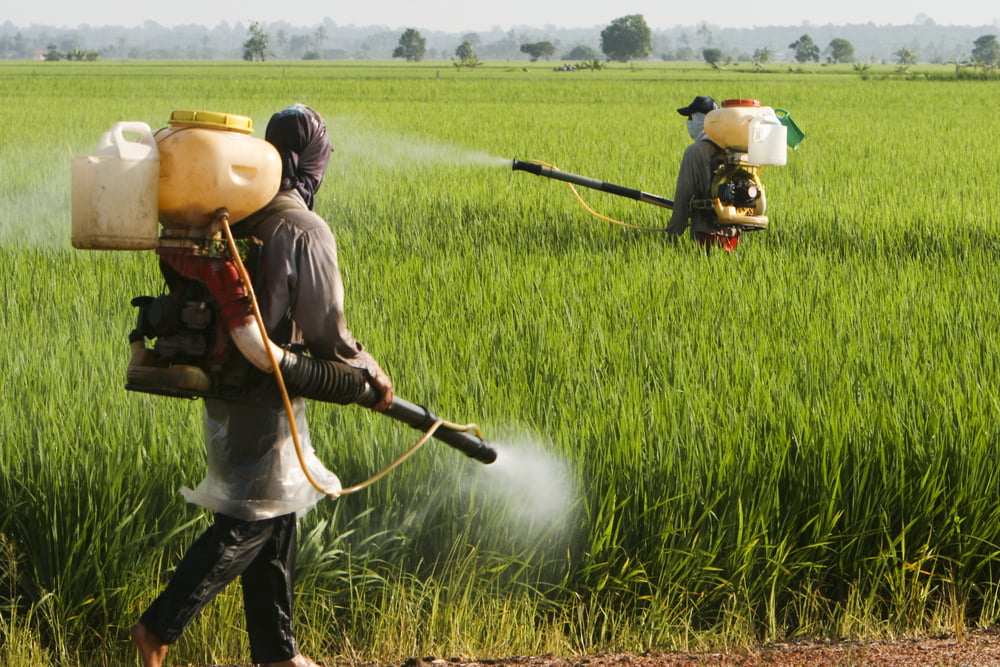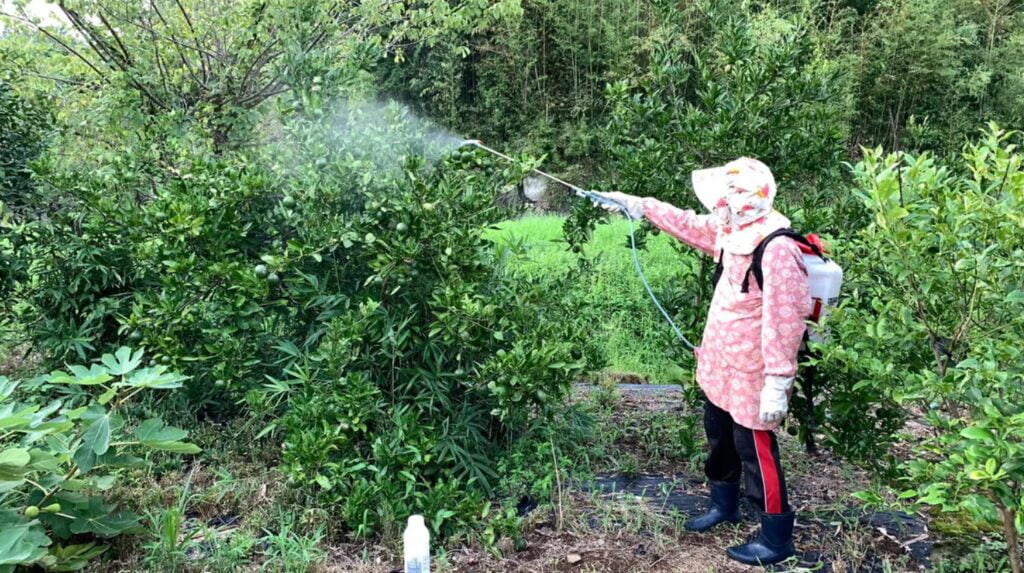An Israeli startup has created an organic formula for protecting plants against insects and fungi using an essential oil as its base ingredient.
BotanoHealth’s BH-B spray uses thyme oil, which co-founder and CEO Yaniv Kitron tells NoCamels has known anti-mold and anti-fungal properties.

Pest attacks on crops are expensive. According to the US Food and Agriculture Organization, up to 40 percent of global crops are destroyed by pests each year, costing some $220 billion.
This has encouraged the commercial use of pesticides in agriculture. In fact, the US alone says it uses roughly one billion pounds of pesticides every year – around one fifth of the total amount of pesticide used worldwide annually.
But ongoing research points to negative long-term effects of pesticides, which contain a variety of chemicals toxic to rodents and insects. As the soil absorbs these chemicals, the pesticide residue can harm future crops, livestock and even contaminate surrounding bodies of water.
Thyme oil contains the chemical compound thymol, which acts as a natural antimicrobial agent by killing microorganisms like bacteria and fungi.
Although it is a common ingredient in everyday products like cosmetics and mouthwash, to date it has not been widely used in large scale-agriculture for practical reasons.
“In order to get good efficacy, you need high concentrations, high dosages. And high doses of essential oils can corrode the plant or produce,” Kitron tells NoCamels.

His company’s answer was a formulation that would boost the effectiveness of the thyme oil without increasing its concentration – and even cost less.
“Usually fungicides based on these active ingredients will have 20-25 percent [composition] of thyme oil, where our product has 1 percent. So it becomes a much cheaper product. And the good thing is it maintains its efficacy, sometimes even more efficacious,” Kitron says.
BotanoHealth’s unique formula uses nanotechnology known as nanoemulsion, which reduces the active ingredient of thyme oil to extremely small droplets before it is added to the fungicide mix.
This creates a more even distribution of the oil on the plants and produce it protects.
Natural Medicine
The company says it only uses ingredients that the US Food and Drug Administration (FDA) classifies as Generally Regarded as Safe (GRAS).

And because these ingredients have already been thoroughly vetted by the US Environmental Protection Agency, the BotanoHealth fungicide spray could go directly into the American market.
“We use the very same products that people use in their gardens. We saw the missing link was to bring those safe ingredients to agriculture,” Kitron says.
Similarly, he says that unlike most American produce treated with pesticides, crops sprayed with their fungicide can bypass the European Union’s Minimum Residue Levels (MRLs), which dictate how much chemical residue can be left on produce.
BH-B was also given the seal of approval from the Organic Materials Evaluation Institute (OMRI) in the US, which independently reviews products such as pesticides and fertilizers for their organic standards.
Sign up for our free weekly newsletter
SubscribeAnalysis by the US Department of Agriculture found that up to 70 percent of produce sold in the United States has chemical residue from pesticides. The bulk of the pesticide market is chemical, which is why Kitron wanted to create a product that did not rely on these ingredients.
“When we compete with chemicals, there are several issues where we know we have certain advantages,” he explains.
“There are certain crops that you cannot spray chemicals on. For example, with grapes or tomatoes or blueberries in their final week or two [of growth], most chemicals cannot be sprayed because they will decompose before the fruit reaches the consumer.”

The formula’s active ingredients are crucial to helping the thyme oil spread across the plant’s surface, something which Kitron compares to soap breaking up oil molecules and allowing them to disperse throughout water.
In order to ensure the stability of these active ingredients, which can be volatile and quickly evaporate, the formula also includes polysaccharides – carbohydrates that help stabilize the ingredients and eliminate the pungent odor that can come with their evaporation.
The fungicide targets gray mold and powdery mildew. During its latest field trial in Spain, using the spray retained more than 20 percent more produce than chemical pesticides.
Furthermore, Kitron says, the fungicide can remain active for up to two weeks, unlike the average chemical product that lasts for two days at most.
The treatment is used as part of the Integrated Pest Management (IPM) program, which takes into account the life cycle of pests, achieving the best results when infestation levels are still low.

Worldwide Appeal
BotanoHealth started their online sales in 2021. The company is also currently selling in stores in Israel, the US and East Asia, and is undergoing the registration process in eight different Latin American countries like Guatemala and Honduras.
“We started about two years ago, and the first crop that had good traction with our fungicide was medical and recreational cannabis in California,” Kitron says.
BotanoHealth has sold an average of 10-20,000 liters of fungicide products a year and has raised almost $1 million in funding, backed by investors that include Israel’s Ministry of Economy.
The company was also part of this year’s cohort of startups selected for MassChallenge Israel‘s four-month Early Stage Accelerator Program, in which the Jerusalem-based nonprofit provided mentorships, workshops and networking opportunities.

Kitron says that the fungicide is not just suited to modern farming methods favored by developed nations, but also less sophisticated systems in the rest of the world.
“A very large portion of global agriculture is very simple and basic, which is what we saw in Ethiopia, India, and many places in South America,” he says.
“You will see that the person who is spraying pesticides is a 12 year old who’s going barefoot, who won’t even think about a mask. They’re spreading some generic product that’s already past its expiration date.
“Nobody’s thinking about what it’s doing to him or all the kids watching him. It affects all of us and the food that we eventually eat – but he’s the first.”
Related posts

Harnessing Our Own Bodies For Side Effect-Free Weight Loss

Israeli Device Is New, Drug-Free Solution For Men Coping With ED





Facebook comments